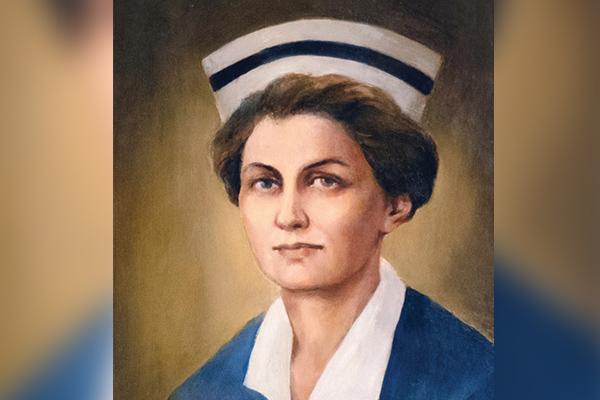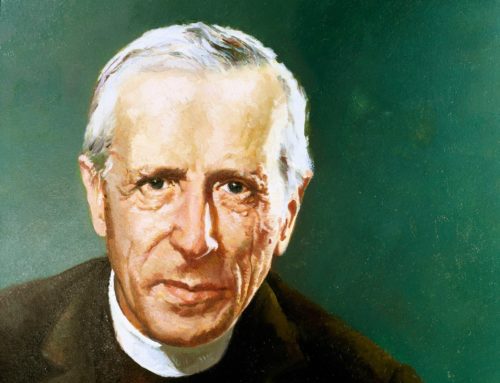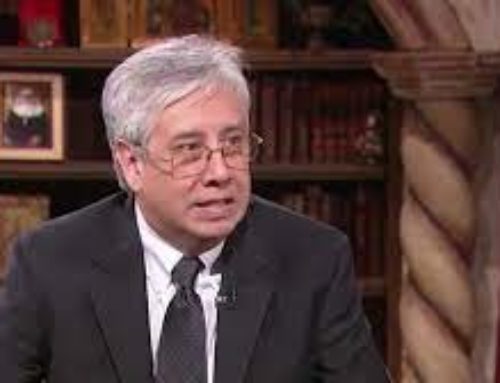| Print this story | Share on Facebook | Share on Twitter | Comments |
Blessed Hanna Chrzanowska, whose feast day is celebrated on April 28th, was born in Warsaw, Poland, on Oct. 7 1902, to a wealthy family, with whom she enjoyed an idyllic childhood. Hanna knew about the nursing profession even as a child, because her maternal aunt, Zofia Szlenkier, who was a well-known philanthropist and founded a paediatric hospital in Warsaw, had studied nursing herself at St. Thomas’ School of Nursing in London, England. When Hanna became ill as a child, and needed to go to hospital, she was admitted to her aunt’s paediatric hospital. This positive childhood experience of hospitalization deeply affected Hanna and intensified her resolve to become a nurse. Hanna wrote in her memoirs, “I did not want to study medicine. Never in my life have I regretted that I am not a physician. Instinctively, I knew that medicine was one profession and nursing was something entirely different … . Also, not only was nursing something else, it was something higher.”
Upon finishing her nurse training, Hanna was sent to Paris, France, on a Rockefeller scholarship to study community nursing. This would define her area of nursing interest for the rest of her life. Hanna spent most of her professional life as a nurse-teacher, responsible for community nursing (which included school nursing and maternal and child health). Hanna helped set up the Polish Nursing Association, became editor of the professional Polish nursing journal, and worked on the first Polish Nursing Act. In addition to her intense nursing activities, she also wrote novels and published poems, enjoyed listening to classical music, and would spend her free moments admiring nature. Later in her life, she would pray and meditate as she walked in the mountains.
During the Second World War, she coordinated relief services for refugees in Kraków, Poland, organizing food banks, soup kitchens, and saving hundreds of people from starvation and depravation. She was forced into early retirement by the post-war Communist authorities, and promptly set about establishing parish nursing, work for which she is best remembered today.
For Hanna, by working among the abandoned and chronically ill in their homes, she was responding to the evangelical calling to serve Christ in her patients. To help her in this deeply spiritual and exhausting undertaking, in 1956 she became a Benedictine Oblate of Tyniec Abbey. She worked closely with St. Pope John Paul II, and in his memoires, the Pope acknowledged that he owed much of his understanding of the mystery of suffering and pain and an appreciation of the work and vocation of nurses to the activities of Hanna Chrzanowska in his Kraków diocese.
The World Health Organization has declared 2020 the International Year of the Nurse, in honour of the 200th anniversary of the birth of Florence Nightingale. It could not have known that this year, more than ever, with the outbreak of coronavirus pandemic, nurses would be called to repeated and sustained acts of heroism and self-sacrifice around the globe. In 1971, Hanna delivered a talk about Florence Nightingale and in it she quoted Nightingale who was commenting about the hard work of her nurses, that she couldn’t stand the ‘pretend sacrifices’ of self-denial, of so-called perfect women, stating: “My aim is not to make the life of nurses miserable but to ensure the best nursing care for the wounded.” Hanna would repeat the same about her parish nurses and the same holds true today for nurses working hard in spite of their own fears and difficulties, in order to deliver the best care possible to sick.
Blessed Hanna wrote, “Florence Nightingale rose so high above the norms of her era, that for us sheer mortals, her example seems too lofty and unattainable. A treacherous thought can therefore creep into our admiration of her: yes, she came from a privileged background, had an excellent education, travelled extensively, and she had the support of those who counted and had considerable funds at her [disposal]. Let’s face it, she was a genius. With this kind of reasoning, we risk forgetting about the difficulties which she had to overcome and about the fights which she went on to win because she gave of herself ??” she gave all that she could.”
This comment about Florence Nightingale could be said word for word about Blessed Hanna herself, and in fact is the call for nurses today who are occupied with fighting the virus, caring for the sick in horrendous conditions, and battling bureaucracies. Give of yourself, give all that you can. It’s all that you can do. For Christian nurses, Blessed Hanna made it clear that when nursing the sick, we are as she said, helping Christ carry His Cross.
Blessed Hanna had faced similar horrific and seemingly unresolvable problems as today’s nurses, and yet calmly, resolutely, she worked to help her patients, offering them physical and spiritual support — made possible and more bearable through her love of Christ and trusting in His Divine Mercy. Blessed Hanna’s feast day is celebrated on April 28th.
Watch “Blessed Hanna: Her Vocation, Spirituality and Message for Healthcare Workers Today,” a talk given by Dr. Gosia Brykczyńska, PhD, RN, OCV, retired nursing professor and international officer for the Royal College of Nursing, and biographer of Blessed Hanna Chrzanowska
“Blessed Hanna Chrzanowska, RN: Her Life as a Nurse and Times”






